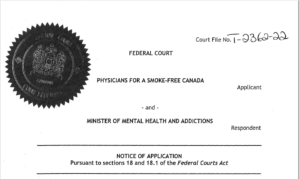VEEBA: In a surprise move, PMI launches disposable vapes in Canada
Date:
This week Canadian consumers and health regulators are facing a significant development in the vaping market, as the world’s largest tobacco company introduces VEEBA – an affordable and fancy disposable vape. Philip Morris is the last of the big tobacco companies to launching vaping products. It’s decision to put its deep pockets and extensive marketing...


